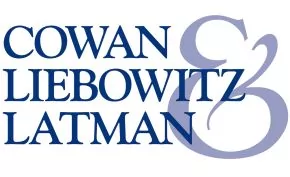On March 19, 2025, the District Court for the Central District of California granted Mariah Carey's motion for summary judgment dismissing a copyright infringement claim brought against her for allegedly copying the holiday hit "All I Want for Christmas Is You."
On November 1, 2023, plaintiffs Andy Stone, also known as Vince Vance, and Troy Powers filed an infringement action against Carey and her co-writer Walter Afanasieff. Plaintiffs claimed that they co-authored a song entitled "All I Want for Christmas Is You," and that Carey and Afanasieff had access to plaintiffs' song, and copied its lyrics, compositional structure, chord progression, melody and harmony.
The parties agreed that the principal issue in the case was whether the parties' respective songs were substantially similar under the Ninth Circuit's extrinsic test and stipulated to an initial phase of expert discovery as to the extrinsic test and a stay of all other discovery. Under the extrinsic test a court "compares the objective similarities of specific expressive elements in the two works." In applying the extrinsic test in musical infringement cases, the Ninth Circuit explicitly requires parties to present expert testimony, because "it is unrealistic to expect district courts to possess even a baseline fluency in musicology."
The court credited "the well-supported conclusions" made in defendants' expert reports, which stated there were no significant structural, harmonic, rhythmic, or melodic similarities between the songs, and that any lyrical similarities were arranged differently, with different phrases, used commonly. Defendants' expert testimony concluded that the songs were very different, the only element of similarity being the use of a commonplace lyrical idea – defendants' literary expert noted 12 works released prior to 1989 that use the phrase "all I want for Christmas is you" or a slight variation – and Christmas song clichés.
The court excluded both of plaintiffs' expert reports, finding neither report to be the product of reliable principles and methods, or to reflect a reliable application of the principles and methods required by the extrinsic test. The well-supported conclusions made in defendants' expert reports were thus effectively unrebutted and not genuinely disputed. Plaintiffs, accordingly, had not met their burden of showing that the songs were substantially similar under the extrinsic test, and a plaintiff who fails to satisfy the extrinsic test cannot survive summary judgment on a copyright claim.
Thus, the court granted Carey's motion for summary judgment and denied plaintiffs' motion for summary judgment.
Stone v. Carey, No. 23-9216, 2025 U.S. Dist. LEXIS 51895 (C.D. Cal. Mar. 19, 2025)
The content of this article is intended to provide a general guide to the subject matter. Specialist advice should be sought about your specific circumstances.


